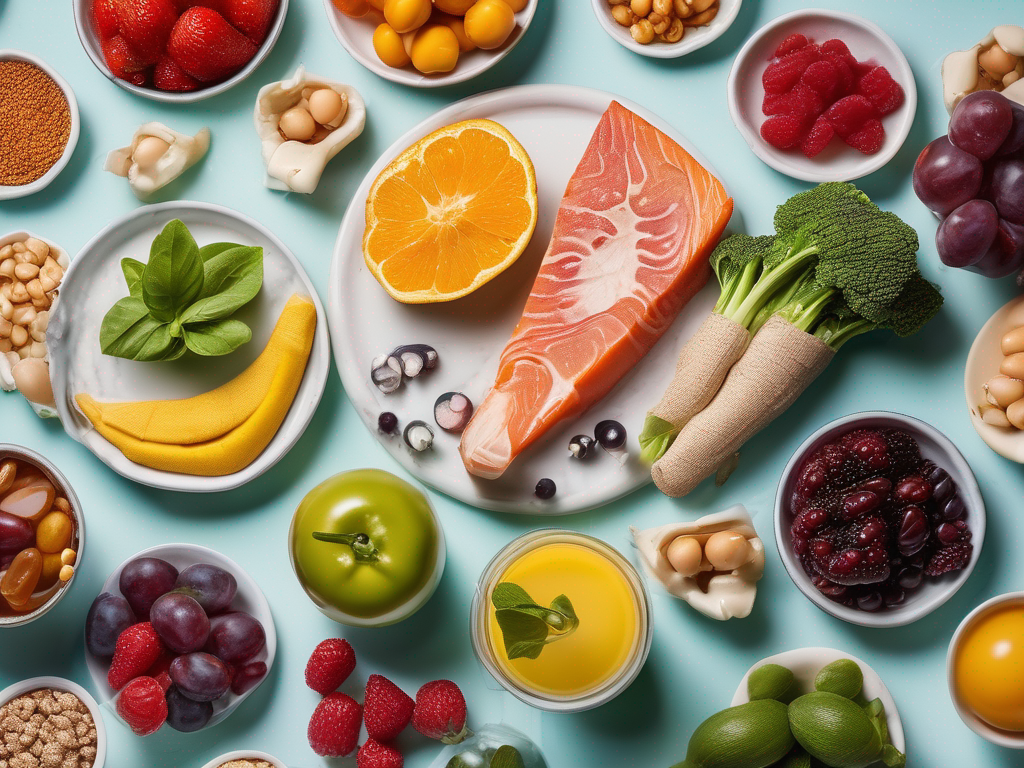
How Long Does Food Last in the Fridge?
How Long Does Food Last in the Fridge?
Welcome to our guide on how long food lasts in the fridge. Proper food storage is essential for maintaining freshness, flavor, and most importantly, food safety. By understanding how long different types of food can be kept in the refrigerator, you can reduce food waste and minimize the risk of foodborne illnesses. Let's dive into the details!
Food Storage Essentials
Products that help you store and preserve your food better
Disclosure: As an Amazon Associate, we earn from qualifying purchases. This helps support our site and allows us to continue providing free food safety information.
Factors Affecting Food Shelf Life in the Fridge
Several factors influence how long food can be safely stored in the refrigerator. These include:
1. Temperature
Maintaining a consistent refrigerator temperature of 40°F (4°C) or below is crucial for slowing down the growth of bacteria and extending the shelf life of perishable items.
2. Packaging
Properly storing food in airtight containers or sealed bags can help prevent contamination and maintain freshness.
3. Type of Food
Different types of food have varying shelf lives in the fridge. It's important to know the specific guidelines for each item.
4. Food Handling
Proper food handling practices, such as washing hands before cooking and storing leftovers promptly, can also impact food shelf life.
Guidelines for Storing Common Foods in the Fridge
Here are some general guidelines for how long common foods can be stored in the refrigerator:
Fresh Produce
- Leafy greens: 3-5 days
- Berries: 3-5 days
- Apples: 3-4 weeks
- Citrus fruits: 2 weeks
- Carrots: 2-3 weeks
Dairy Products
- Milk: 5-7 days after the sell-by date
- Cheese: 1-2 weeks (soft), 2-3 weeks (hard)
- Yogurt: 1-2 weeks after opening
Meat and Seafood
- Raw poultry: 1-2 days
- Raw beef, pork, lamb: 3-5 days
- Fish: 1-2 days
- Cooked meat: 3-4 days
Leftovers
- Cooked vegetables: 3-4 days
- Soups and stews: 3-4 days
- Pasta dishes: 3-5 days
- Casseroles: 3-4 days
Tips for Extending Food Shelf Life
Recommended Food Storage Products
Keep your food fresh and organized with these storage solutions
Disclosure: As an Amazon Associate, we earn from qualifying purchases. This helps support our site and allows us to continue providing free food safety information.
To maximize the shelf life of food in your fridge, consider the following tips:
-
Proper Storage: Store food in the correct part of the refrigerator. For example, keep raw meat on the bottom shelf to prevent drips onto other items.
-
Labeling: Label your leftovers with the date they were prepared to track how long they have been in the fridge.
-
Rotate Items: Use the "first in, first out" rule to ensure older items are used before newer ones.
-
Check Temperature: Regularly monitor the temperature of your fridge with a thermometer to ensure it stays at the optimal level.
-
Avoid Overcrowding: Proper air circulation is essential for maintaining food quality. Avoid overpacking your fridge.
Conclusion
Understanding how long food lasts in the fridge is key to preventing food waste and ensuring food safety. By following proper storage guidelines, handling food correctly, and paying attention to expiration dates, you can enjoy fresh and safe food for longer periods. Remember to regularly clean your fridge to prevent cross-contamination and maintain a healthy kitchen environment. Stay informed, stay safe, and enjoy your meals!

How long can I safely keep cooked chicken in the fridge?
What is the best way to store fruits and vegetables in the refrigerator to maximize their shelf life?
Can I still eat food that has been in the fridge past its expiration date?
How long does milk last in the fridge after opening?
Is it safe to freeze leftovers to extend their shelf life?
Food Storage Essentials We Love
Products that help you store and preserve your food better
Disclosure: As an Amazon Associate, we earn from qualifying purchases. This helps support our site and allows us to continue providing free food safety information.
Scan your food directly and get instant safety info using our AI-powered camera feature.




